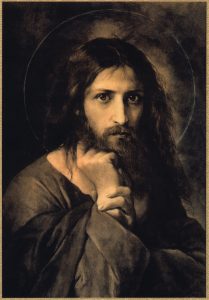The personal interpretation of the Holy Scriptures, when severed from the mind of the Church, has proven throughout history to be not only hazardous but spiritually calamitous. The Bible is not a private possession, nor are they a playground for subjective speculation; they constitute the sacred inheritance of the Holy Church, written by men inspired by the Holy Spirit, preserved within the life and worship of the ecclesial Body, and rightly understood only within that living Tradition.
The danger does not lie in the prayerful reading of the Scriptures, but in reading it with pride—cut off from the consensus of the Fathers, the witness of the Liturgy, and the guidance of the Holy Spirit through the Church. The Apostle Peter warns us directly about this. “Understanding this first, that no prophecy of scripture is made by private interpretation. For prophecy came not by the will of man at any time: but the holy men of God spoke, inspired by the Holy Ghost.” (2 Peter 1:20–21)
From this, we understand that Scripture is not self-interpreting, nor is it a licence for doctrinal innovation or personal theological theory. The history of the Church is replete with examples of sects, heresies, and schisms that emerged from individuals or groups who, in pride or ignorance, removed themselves from the Apostolic and Patristic Tradition and presumed to grasp the meaning of divine revelation by their own intellect alone.
The Holy Church teaches that Scripture must be interpreted within the mind of the Church, which includes the decrees of the Ecumenical Councils, the consensus of the Holy Fathers, and the doxological life of the Church.
It must be interpreted by those who are illumined—not self-appointed interpreters, but those spiritually purified and guided by the Holy Spirit through prayer, humility, and obedience.
The Scriptures are interpreted liturgically and sacramentally—for the Scriptures are most clearly understood when proclaimed within the services of the Church, especially the Divine Liturgy, where Christ opens the Scriptures to His disciples in the breaking of the Bread.
St Irenaeus of Lyons warned against those who interpret Scripture apart from the Apostolic Tradition. He said that “they turn round and accuse [the Scriptures], as if they were not correct, nor of authority, and [assert] that they are ambiguous, and that the truth cannot be extracted from them by those who are ignorant of tradition.” (Against Heresies, Book I, Chapter 2)
The proliferation of Protestant denominations—now numbering in the tens of thousands—is a visible testament to the consequences of self-appointed leadership, private interpretation, and spiritual pride. Many of these sects were founded not by those authorised through Apostolic succession or called by the discernment of the Church, but by individuals who presumed for themselves the right to preach, to govern, and to interpret Scripture apart from the consensus of the saints. Lacking humility and refusing correction, they elevated their own opinions above the witness of the Fathers, the Ecumenical Councils, and the liturgical life of the Church. In doing so, they fractured the unity of Christendom, each establishing a pulpit of their own authority rather than submitting to the one, holy, catholic, and apostolic Church. This chaos, born of personal ambition and doctrinal innovation, continues to produce division rather than truth, confusion rather than communion.
Every true Christian ought to approach the Holy Scriptures not as a solitary authority unto themselves, but as a living member of the Body of Christ, grounded in the sacred Tradition that has been handed down through the Apostles, the Fathers, and the Councils. The Bible was never intended to function in isolation from the Church, for it is within the life, worship, and teaching of the Church that the Scriptures were written, compiled, preserved, and rightly interpreted. To remove oneself from this living context is to risk misreading the very oracles of God, turning what is meant for salvation into a snare of confusion.
The Spirit of God speaks through the Church—not through every private imagination—and it is only in humility, obedience, and prayerful attentiveness to the mind of the Church that one may begin to read the Scriptures rightly. Better it is to tremble before one verse and understand it in accordance with the faith once delivered to the saints, than to consume countless chapters guided by self-will, pride, and novelty, and so fall into the darkness of delusion. As the Fathers consistently taught, knowledge without communion is dangerous, and zeal without guidance leads to ruin. The Scriptures are light indeed—but a light that must be received through the clear window of the Church, not through the distorted lens of private judgement.
As St. Anthony the Great said, “A time is coming when men will go mad, and when they see someone who is not mad, they will attack him, saying, ‘You are mad; you are not like us.’”
Let us not be driven to madness by the vanity of our own interpretations, but be made truly sane through the wisdom of the saints.
May God bless you +
Fr. Charles
6 July 2025

Comments are closed.